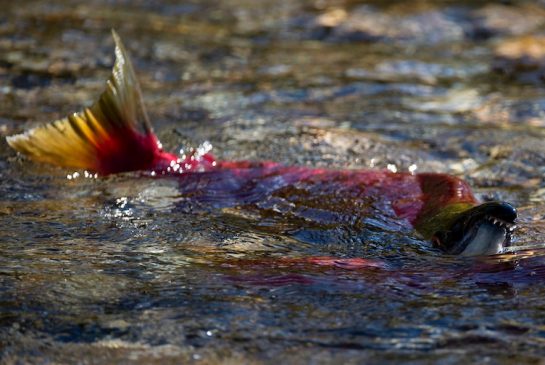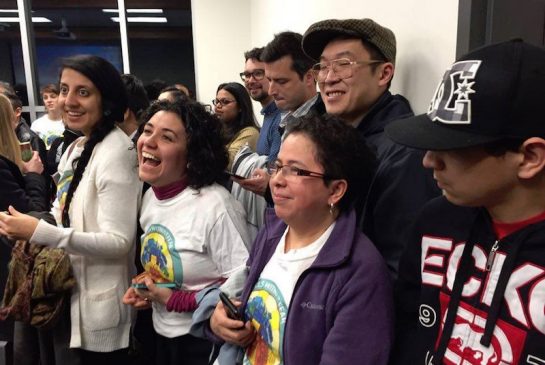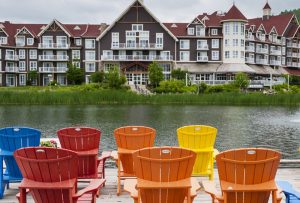Disastrous Fraser River salmon run eclipses 2009 collapse
Warmer waters, overfishing, fish farm impacts all likely contributed to this year's dismal returns: environmental group
A
A
| Report an Error |
Share via Email

THE CANADIAN PRESS/Jonathan Hayward
Spawning sockeye salmon in the Adams River near Chase, B.C. in 2014


B.C.’s sockeye salmon run is at its lowest level in recorded history, with much of the blame being placed on higher water temperatures in the Pacific Ocean and Fraser River.
This year, the Pacific Salmon Commission had predicted just 2,271,000 sockeye to return, but has now revised that to 853,000. The situation has prompted the complete closure of the commercial and First Nations fisheries on the Fraser River.
“Every time there’s a low return on sockeye, First Nations of the coast and up the Fraser River and up the river systems are going to have to go without food for the winter,” said Bob Chamberlain, vice chairman of the Union of B.C. Indian Chiefs and a councillor of the Kwicksutaineuk Ah-kwa-mish First Nation.
“It’s well-reported all across Canada, the level of poverty that’s in our communities.”
The projected returns are lower even than the disastrous 2009 sockeye run of 1.3 million fish, which prompted the creation of the federal Cohen Commission to look into the cause of the fishery collapse.
“There’s been very tough ocean conditions for salmon over the past few years due to the warm ‘blob’ in the Pacific, a giant mass of much warmer than average water in the Pacific,” said Aaron Hill, executive director of Watershed Watch Salmon Society.
It has reduced the amount and quality of food available to salmon and introduced predators who would normally stay in warmer waters. The ongoing El Nino weather pattern is also warming things up.
A second year of smaller than normal snowpacks has reduced the amount of water flowing to the Fraser River, meaning the river is now so warm that many fish could die before they reach the spawning grounds, further reducing the already smaller population.
Over fishing, diseases spread by fish farms and taking too much water out of the Fraser River for irrigation are also factors, Hill said.
The federal government has promised action on the long-dormant recommendations of the Cohen Commission. However, new measures to implement those recommendations don’t include new limits on fish farms.
That concerns Chamberlin, who would like to see all fish farming in B.C. moved to closed-containment farms on land. He said a company owned by the ‘Namgis First Nation proves that land-based systems can be successful.
Given the role of warming ocean conditions in the sockeye’s decline, Hill said it was disappointing to see the B.C. government adopt a climate plan that has been heavily criticized by environmental groups because it did not raising the provincial carbon tax. Under the plan, B.C. is unlikely to meet its own greenhouse gas emissions targets.














